Ditapis dengan

One hundred years of chemical warfare:research, deployment, consequences
On April 22, 1915, the German military released 150 tons of chlorine gas at Ypres, Belgium. Carried by a long-awaited wind, the chlorine cloud passed within a few minutes through the British and French trenches, leaving behind at least 1,000 dead and 4,000 injured. This chemical attack, which amounted to the first use of a weapon of mass destruction, marks a turning point in world history. The …
- Edisi
- -
- ISBN/ISSN
- 9783319516646
- Deskripsi Fisik
- xi, 408p. : ill.
- Judul Seri
- -
- No. Panggil
- 355 ONE o

The Second World War in the Twenty-First-Century Museum :from narrative, memo…
The Second World War is omnipresent in contemporary memory debates. As the war fades from living memory, this study is the first to systematically analyze how Second World War museums allow prototypical visitors to comprehend and experience the past. It analyzes twelve permanent exhibitions in Europe and North America – including the Bundeswehr Military History Museum in Dresden, the Museum o…
- Edisi
- -
- ISBN/ISSN
- 9783110664416
- Deskripsi Fisik
- XIV, 354 p.
- Judul Seri
- -
- No. Panggil
- 943 JAE s
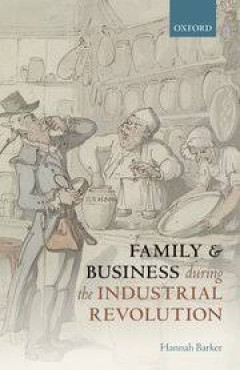
Family and business during the Industrial Revolution
Small businesses were at the heart of the economic growth and social transformation that characterized the Industrial Revolution in Britain. In towns across north-west England, shops and workshops dominated the streetscape, and helped to satisfy an increasing desire for consumer goods. Yet, despite their significance, we know surprisingly little about these firms and the people who ran them, fo…
- Edisi
- -
- ISBN/ISSN
- 9780198786023
- Deskripsi Fisik
- viii, 262 pages : illustrations ; 24 cm
- Judul Seri
- -
- No. Panggil
- 338.09034 BAR f

Long history, deep time. Deepening histories of place
The vast shape-shifting continent of Australia enables us to take a long view of history. We consider ways to cross the great divide between the deep past and the present. Australia’s human past is not a short past, so we need to enlarge the scale and scope of history beyond 1788. In ways not so distant, these deeper times happened in the same places where we walk today. Yet, they were not th…
- Edisi
- -
- ISBN/ISSN
- 9781925022520
- Deskripsi Fisik
- 241 p.; 22 cm.
- Judul Seri
- -
- No. Panggil
- 994.0049915 LON l
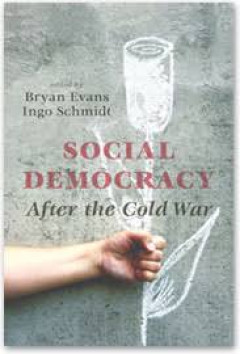
Social democracy after the cold war
Despite the market triumphalism that greeted the end of the Cold War, the collapse of the Soviet empire seemed initially to herald new possibilities for social democracy. In the 1990s, with a new era of peace and economic prosperity apparently imminent, people discontented with the realities of global capitalism swept social democrats into power in many Western countries. The resurgence was, ho…
- Edisi
- -
- ISBN/ISSN
- 9781926836881
- Deskripsi Fisik
- 332 p. ; 23 cm.
- Judul Seri
- -
- No. Panggil
- 300 SCH s

A People's history of modern Europe
From the monarchical terror of the Middle Ages to the mangled Europe of the Twenty-first Century, A People's History of Modern Europe tracks the history of the continent through the deeds of those whom mainstream history tries to forget. Europe provided the perfect conditions for a great number of political revolutions from below. The German peasant wars of Thomas Müntzer, the bourgeoisie revo…
- Edisi
- -
- ISBN/ISSN
- 9781783717675
- Deskripsi Fisik
- 289 p.; 22 cm.
- Judul Seri
- -
- No. Panggil
- 909.08 APE p

Sergei M. Eisenstein:notes for a general history of cinema
One of the iconic figures of the twentieth-century cinema, Sergei Eisenstein is best known as the director of The Battleship Potemkin, Alexander Nevskii and Ivan the Terrible. His craft as director and film editor left a distinct mark on such key figures of the Western cinema as Nicolas Roeg, Francis Ford Coppola, Sam Peckinpah and Akiro Kurosawa.This comprehensive volume of Eisenstein’s writ…
- Edisi
- -
- ISBN/ISSN
- 9789089648440
- Deskripsi Fisik
- -
- Judul Seri
- -
- No. Panggil
- 791.430233092 SER s

Colonial Australian fiction :characterTypes, social formationsand the colonia…
Over the course of the 19th century a remarkable array of types appeared in Australian literature: the swagman, the larrikin, the colonial detective, the bushranger, the currency lass”, the squatter, and more. Some had a powerful influence on the colonies’ developing sense of identity; others were more ephemeral. But all had a role to play in shaping and reflecting the social and economic c…
- Edisi
- -
- ISBN/ISSN
- 9781743324615
- Deskripsi Fisik
- -
- Judul Seri
- -
- No. Panggil
- 820.9994 GEL c
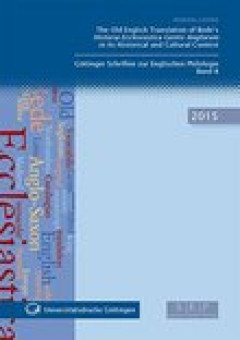
The Old English translation of Bede's Historia Ecclesiastica Gentis Anglorum …
Did King Alfred the Great commission the Old English translation of Bede’s Historia Ecclesiastica Gentis Anglorum, probably the masterpiece of medieval Anglo-Latin Literature, as part of his famous program of translation to educate the Anglo-Saxons? Was the Old English Historia, by any chance, a political and religious manifesto for the emerging ‘Kingdom of the Anglo-Saxons’? Do we deal w…
- Edisi
- -
- ISBN/ISSN
- 978386395189
- Deskripsi Fisik
- 411 p.
- Judul Seri
- -
- No. Panggil
- 274.2 LEM o
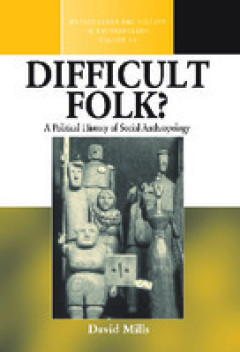
Difficult folk?:a political history of social anthropology
How should we tell the histories of academic disciplines? All too often, the political and institutional dimensions of knowledge production are lost beneath the intellectual debates. This book redresses the balance. Written in a narrative style and drawing on archival sources and oral histories, it depicts the complex pattern of personal and administrative relationships that shape scholarly wor…
- Edisi
- -
- ISBN/ISSN
- 9781785336638
- Deskripsi Fisik
- x, 222p.
- Judul Seri
- -
- No. Panggil
- 306.20941 MIL d
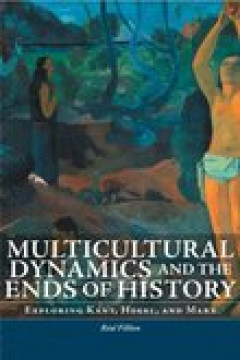
Multicultural dynamics and the ends of history
Multicultural Dynamics and the Ends of History provides a strikingly original reading of key texts in the philosophy of history by Kant, Hegel, and Marx, as well as strong arguments for why these texts are still relevant to understanding history today. Réal Fillion offers a critical exposition of the theses of these three authors on the dynamics and the ends of history, in order to provide an …
- Edisi
- -
- ISBN/ISSN
- 9780776606705
- Deskripsi Fisik
- -
- Judul Seri
- -
- No. Panggil
- 901 FIL m

Historical background of Wang Yang-ming’s philosophy of mind:from the persp…
This open access book offers comprehensive information on Wang Yang-ming’s life, helping readers identify and grasp the foundations on which his philosophy was established. Though a great man, Wang had an extremely difficult life, full of many hardships. Based on various official histories, Wang’s own writings, and his disciples’ records, the book explores the legendary life of this ancie…
- Edisi
- -
- ISBN/ISSN
- 9789811530364
- Deskripsi Fisik
- 199 p.; 22 cm.
- Judul Seri
- -
- No. Panggil
- 909 DON h

Gender, reading, and truth in the twelfth century
Female Spirituality; Courtly Romance; Use of images; Fiction; Exegesis; Vernacular Literature; Chrétien de Troyes; Wolfram von Eschenbach
- Edisi
- -
- ISBN/ISSN
- 9781641893787
- Deskripsi Fisik
- XII, 419 p.
- Judul Seri
- -
- No. Panggil
- 809.393581 POW g

History and religion:narrating a religious past
This volume is the first systematic scholarly study that analyses the complex relationship between history and religion. It considers religious groups as both producers of historical narratives and topics of historiography. From different disciplinary perspectives, the authors explore how religions are historicised. In so doing, they address the biases and elisions of current analytical and des…
- Edisi
- -
- ISBN/ISSN
- 9783110445954
- Deskripsi Fisik
- 471 p.; 22 cm.
- Judul Seri
- -
- No. Panggil
- 201.69 HIS h
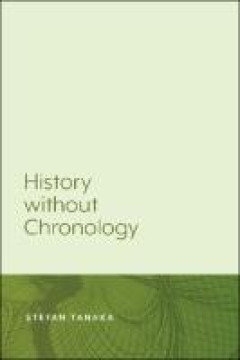
History without chronology
Although numerous disciplines recognize multiple ways of conceptualizing time, Stefan Tanaka argues that scholars still overwhelmingly operate on chronological and linear Newtonian or classical time that emerged during the Enlightenment. This short, approachable book implores the humanities and humanistic social sciences to actively embrace the richness of different times that are evident in no…
- Edisi
- -
- ISBN/ISSN
- 9781643150048
- Deskripsi Fisik
- XIV, 202 p.
- Judul Seri
- -
- No. Panggil
- 115 TAN h
Cold War cosmopolitanism:period style in 1950s Korean cinema
"Han Hyung-mo was a major figure within South Korea’s Golden Age cinema. The director of Madame Freedom (1956), the most famous film of the 1950s, Han made popular films that explored women’s relationship to modernity. He was also a master stylist who introduced technological innovations and fresh ideas about film form and genre into Korean cinema. This book offers a transnational cultural …
- Edisi
- -
- ISBN/ISSN
- 9780520968981
- Deskripsi Fisik
- pages cm
- Judul Seri
- -
- No. Panggil
- 791.430233092 KLE c

A history of male psychological disorders in Britain, 1945–1980
Statistically, women appear to suffer more frequently from depressive and anxiety disorders, featuring more regularly in primary care figures for consultations, diagnoses and prescriptions for psychotropic medication. This has been consistently so throughout the post-war period with current figures suggesting that women are approximately twice more likely to suffer from affective disorders than…
- Edisi
- -
- ISBN/ISSN
- 9781137448880
- Deskripsi Fisik
- -
- Judul Seri
- -
- No. Panggil
- 610 HAG a

History of international relations:a non-European perspective
Existing textbooks on international relations treat history in a cursory fashion and perpetuate a Euro-centric perspective. This textbook pioneers a new approach by historicizing the material traditionally taught in International Relations courses, and by explicitly focusing on non-European cases, debates and issues.The volume is divided into three parts. The first part focuses on the internati…
- Edisi
- -
- ISBN/ISSN
- 9781783740222
- Deskripsi Fisik
- 218 p.; 22 cm.
- Judul Seri
- -
- No. Panggil
- 327.09 RIN h
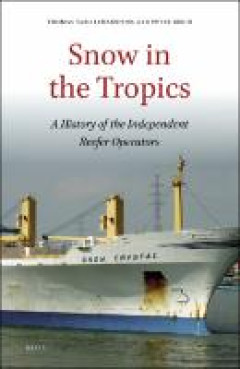
Snow in the tropics:a history of the independent reefer operators
Snow in the Tropics offers the first comprehensive history of the independent reefer operators, companies that are dedicated to transport refrigerated products by ship, from the early 20th century to the present. Readership: All interested in maritime history, particularly those with an interest in the modern history of the shipping industry.
- Edisi
- -
- ISBN/ISSN
- 9789004393868
- Deskripsi Fisik
- xiv, 278p.: ill.
- Judul Seri
- -
- No. Panggil
- 387.554 LEN s
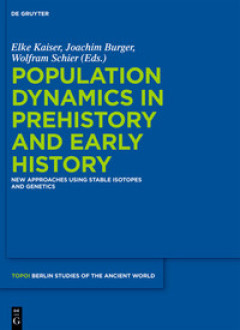
Population dynamics in prehistory and early history :new approaches by using …
Migrations and population dynamics are considered very problematic topics in the fields of ancient studies. Recent scholarship in (pre)historical population has generated new impulses by using scientific approaches using radiogenic and stable isotopes, and palaeogenetics, as well as computer simulation. As a result, the state of migration research has undergone rapid change. Several research gr…
- Edisi
- -
- ISBN/ISSN
- 9783110266306
- Deskripsi Fisik
- X, 353 p.
- Judul Seri
- -
- No. Panggil
- 599.9 POP p
 Karya Umum
Karya Umum  Filsafat
Filsafat  Agama
Agama  Ilmu-ilmu Sosial
Ilmu-ilmu Sosial  Bahasa
Bahasa  Ilmu-ilmu Murni
Ilmu-ilmu Murni  Ilmu-ilmu Terapan
Ilmu-ilmu Terapan  Kesenian, Hiburan, dan Olahraga
Kesenian, Hiburan, dan Olahraga  Kesusastraan
Kesusastraan  Geografi dan Sejarah
Geografi dan Sejarah